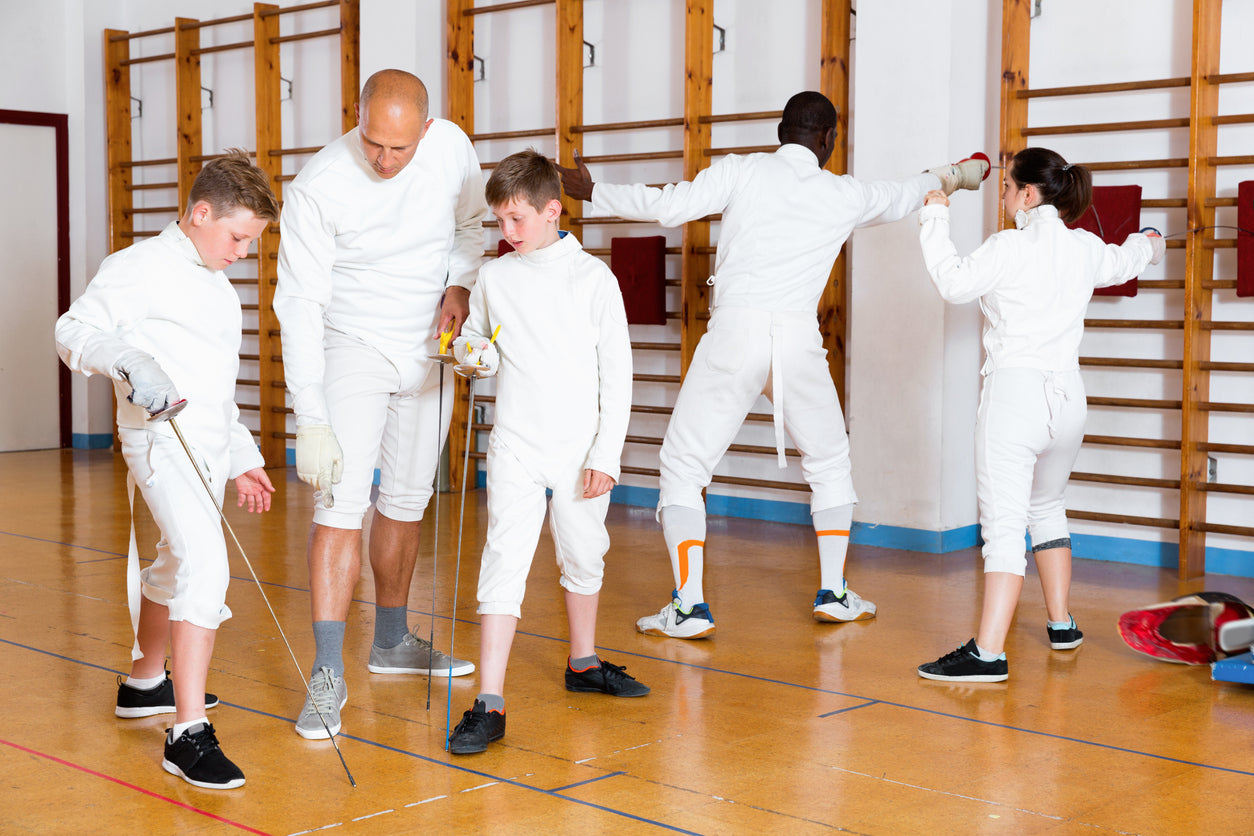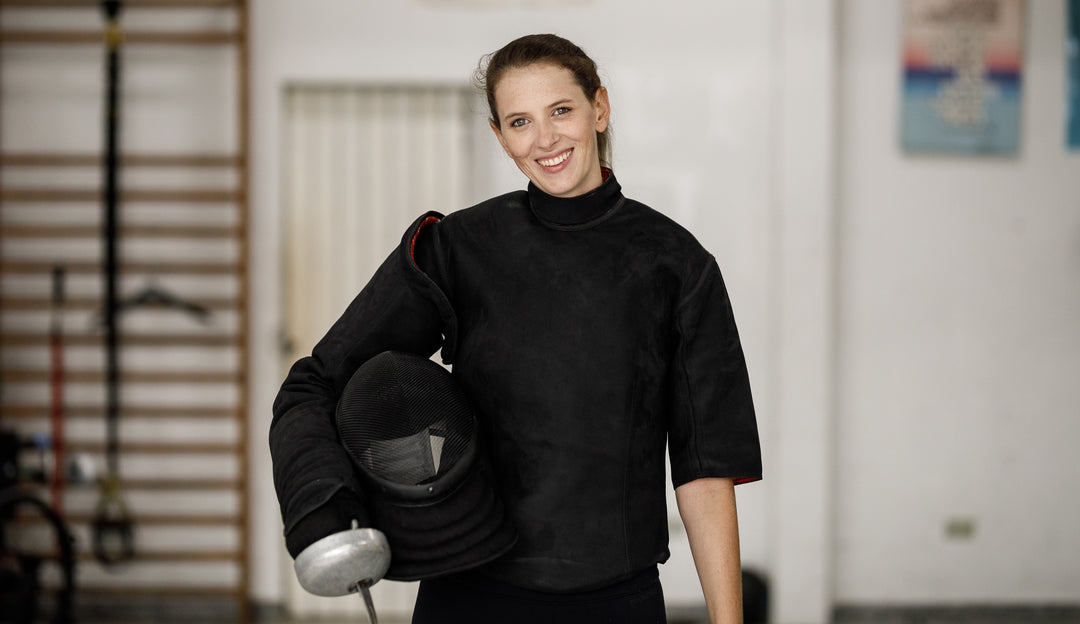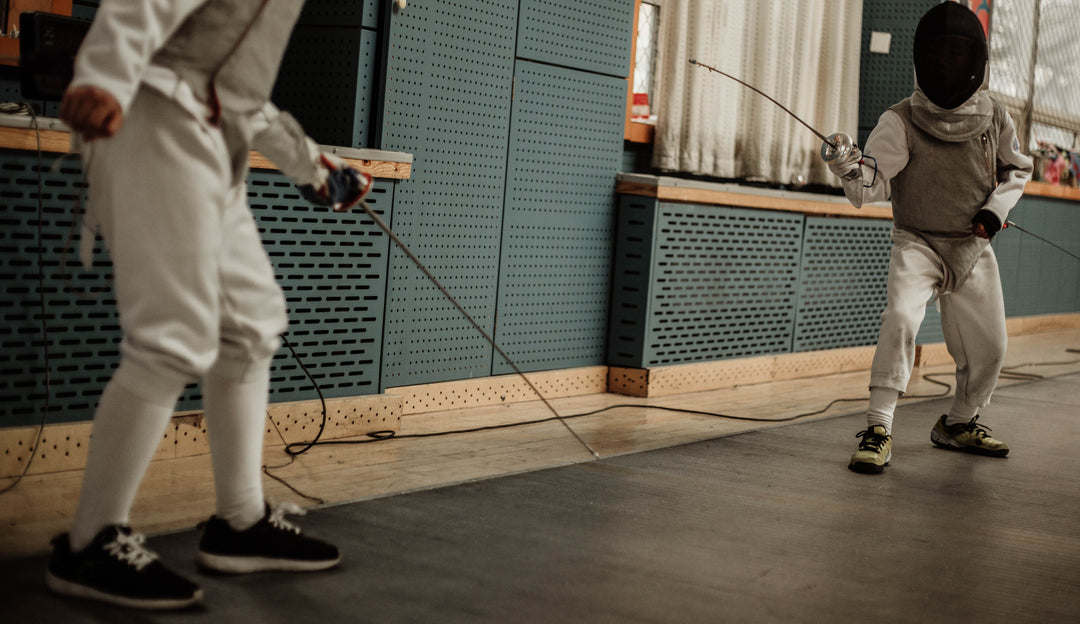Introducción
Si alguna vez has visto una competencia de esgrima y has pensado: "Eso se ve increíble, ¡me encantaría probarlo!", entonces estás en buena compañía. La esgrima ha ido ganando popularidad por su combinación de capacidad atlética, estrategia y encanto del viejo mundo. Pero, ¿por dónde empezar si eres nuevo en este deporte? En esta guía, te mostraremos cómo encontrar un gran club de esgrima en tu área usando el Buscador de clubes de esgrima de EE. UU. y te guiaremos a través de los criterios clave que ayudan a los principiantes a sentirse seguros y respaldados desde el primer día.
Por qué la esgrima es un gran deporte para principiantes
Beneficios físicos: La esgrima pone a prueba la agilidad, la coordinación y la condición física general. Es un ejercicio atractivo que puede mejorar la salud cardiovascular sin la monotonía de una cinta de correr.
Beneficios mentales: La esgrima, conocida como “ajedrez físico”, agudiza la concentración y el pensamiento estratégico. Planificar los ataques y leer los movimientos del oponente es la mitad de la diversión (¡y del desafío!).
Aspecto comunitario: la mayoría de los clubes de esgrima cuentan con un entorno unido y solidario. Estarás rodeado de otros esgrimistas que recuerdan lo que es ser principiante y de entrenadores apasionados por fomentar nuevos talentos.
Cómo utilizar el buscador de clubes de esgrima de EE. UU.
Para muchos principiantes, la forma más sencilla de comenzar la búsqueda es el Buscador de clubes de esgrima de EE. UU . Está diseñado para ayudarlo a descubrir clubes registrados en su ciudad o código postal.
-
Visita el sitio web
Dirígete al Buscador de clubes de esgrima de EE. UU . -
Ingrese su ubicación
Ingresa tu ciudad o código postal. O, si lo prefieres, habilita los servicios de ubicación para ver rápidamente los clubes cercanos. -
Filtrar su búsqueda
Puedes limitar tu búsqueda por armas de esgrima (florete, espada, sable) o elegir un estado/división si estás buscando en una región específica. -
Ver los detalles
Haga clic en cualquier club de la lista para ver una descripción general de su personal de entrenamiento, información de contacto y si se centran en programas para jóvenes, clases para adultos o una pista competitiva.
Eso es todo lo que se necesita, pero para saber qué palo es el adecuado para ti es necesario investigar un poco más.
Criterios para seleccionar el club de esgrima adecuado
Una vez que tenga una lista de clubes, considere los siguientes factores antes de hacer su elección:
1. Ubicación y accesibilidad
Cercanía a tu casa o trabajo: si el club está demasiado lejos, es posible que pierdas clases. Elige un lugar al que puedas comprometerte razonablemente, ya sea cerca de tu oficina para las sesiones de los días laborables o cerca de tu casa para las sesiones de los fines de semana.
Estacionamiento y transporte público: asegúrese de que sea posible viajar hasta el lugar. Algunos clubes tienen estacionamiento exclusivo o son accesibles en tren o autobús, lo que puede suponer una gran diferencia en términos de comodidad.
2. Credenciales del entrenador y estilo de enseñanza
Experiencia y certificaciones: Pregunte sobre la trayectoria de los entrenadores. ¿Han competido a nivel nacional o internacional? ¿Han entrenado a atletas que han llegado a competiciones nacionales o internacionales? ¿Poseen alguna certificación de entrenador?
SafeSport y verificación de antecedentes: USA Fencing exige que los entrenadores realicen verificaciones de antecedentes de SafeSport de forma activa. Confirme que su club potencial sigue estas pautas para garantizar un entorno seguro y de apoyo, y que todas las verificaciones de antecedentes se actualizan de forma activa.
Especialización en armas: no todos los clubes son igualmente fuertes en todas las armas. Si tienes preferencia por el florete, la espada o el sable, comprueba que el cuerpo técnico y los miembros coincidan con tus intereses.
Filosofía de enseñanza: Algunos clubes se centran en la competición, mientras que otros priorizan la construcción de bases sólidas en un ambiente más recreativo. Elige el estilo que se adapte a tus objetivos, ya sea que quieras competir o simplemente practicar esgrima por diversión.
3. Número de miembros y diversidad de armas
Número de miembros: tener más esgrimistas suele significar que habrá más compañeros de entrenamiento y, por lo general, también un programa de clases más completo.
Miembros por arma: si eres un apasionado del sable, querrás asegurarte de que haya una presencia decente de sables. Un club centrado en el florete con solo uno o dos esgrimistas de sable puede no ser ideal si quieres combates regulares con el arma que elijas.
Número de entrenadores: un club con varios entrenadores puede ayudarte a aprender de diferentes estilos de enseñanza y a recibir más comentarios personalizados en clases grupales.
4. Instalaciones y equipamiento del club
Seguridad y mantenimiento: Un espacio bien mantenido es fundamental. Las pistas deben estar en buenas condiciones y el entorno en general debe transmitir una sensación de seguridad y orden.
Suministro de equipo: los clubes para principiantes suelen tener equipo básico disponible para alquilar o prestar. Averigüe si necesita invertir en su propio equipo de inmediato o si puede probar el deporte primero.
5. Horarios de clases, progresión del entrenamiento y esgrima abierta
Variedad de clases: busca clubes que ofrezcan clases para principiantes, intermedios y avanzados. Un camino de progresión claro significa que puedes seguir con el mismo club a medida que mejoras.
Plan de estudios estructurado: algunos clubes describen exactamente cómo pasarás de las lecciones para principiantes a un entrenamiento más avanzado. Si te interesa competir, pregunta por programas especializados o equipos competitivos.
Esgrima abierta: Además de las clases formales, ¿tienen sesiones de combate abiertas donde puedas practicar lo que has aprendido? Tener muchas horas de esgrima abierta es una gran ventaja para el desarrollo de habilidades.
Horarios y costos convenientes: si quieres asistir a clases regularmente, verifica si el horario se adapta a tu estilo de vida. Algunos clubes ofrecen opciones de pago flexibles o tarifas con descuento para sesiones adicionales.
6. Costos y opciones de membresía
Cuotas de membresía: los clubes pueden cobrar cuotas mensuales, trimestrales o anuales. Algunos permiten la inscripción sin cita previa o paquetes de clases si no estás listo para una membresía completa.
Costos adicionales: el alquiler de equipos, la inscripción a torneos o las tarifas de administración del club pueden sumarse. Asegúrese de tener una idea clara de todos los posibles gastos.
7. Cultura y comunidad del club
Ambiente: Observa cómo interactúan los entrenadores y los miembros actuales. Un ambiente agradable y acogedor puede marcar una gran diferencia para los nuevos esgrimistas.
Inclusión: ¿El club está abierto a esgrimistas de todas las edades, orígenes y niveles de habilidad? Si te pone nervioso empezar un nuevo deporte, un entorno de apoyo puede hacerte sentir cómodo.
Mentoría: en muchos clubes, los esgrimistas más experimentados ayudan a los principiantes a aprender los trucos. Esta tutoría integrada puede acelerar tu progreso y conectarte con la comunidad.
Preguntas que debe hacer a los posibles clubes de esgrima
Cuando haya reducido su lista a unos pocos contendientes principales, aquí hay algunas preguntas específicas para ayudarlo a finalizar su elección:
-
Antecedentes del entrenador:
“¿Cuáles son las calificaciones y el historial competitivo de sus entrenadores?”
“¿Han entrenado esgrimistas que llegaron a competiciones nacionales o internacionales?” -
Cumplimiento de SafeSport:
“¿Los entrenadores están certificados por SafeSport y tienen verificaciones de antecedentes vigentes?” -
Ruta de progresión:
“¿Cómo pasan los principiantes a las clases intermedias o avanzadas?” -
Oportunidades de competencia:
"¿A qué torneos animas a tus miembros a asistir?" -
Sesiones de prueba:
"¿Ofrecen una clase de prueba gratuita o con descuento para nuevos esgrimistas?" -
Equipo:
“¿Los principiantes pueden pedir prestado el equipo o debemos comprar nuestro propio equipo de inmediato?” -
Esgrima abierta:
“¿Con qué frecuencia puedo venir a practicar esgrima fuera del horario regular de clases?” -
Tamaño del club y demografía:
“¿Cuántos esgrimistas en activo hay en florete, espada y sable?” -
Estructura de costos:
“¿Qué planes de membresía ofrecen? ¿Hay algún cargo oculto?”
Próximos pasos
Elegir el club de esgrima adecuado no solo es una cuestión de ubicación: se trata de encontrar un lugar donde los entrenadores tengan experiencia , la comunidad sea acogedora y los programas se ajusten a sus aspiraciones (ya sea ganar medallas en torneos o simplemente mantenerse activo de una manera divertida y única).
-
Comience su búsqueda
Utilice el Buscador de clubes de esgrima de EE. UU. para crear una lista corta de clubes. -
Haga las preguntas importantes
Comuníquese con cada club o programe una visita para ver si se alinea con los criterios que más le importan. -
Prepárate con el club de esgrima
Si necesita equipamiento o información más detallada sobre el entrenamiento, consulte Fencing Club para obtener equipos y recursos que le ayudarán a subir de nivel en este deporte.
¿Tienes preguntas sobre cómo elegir el club de esgrima adecuado o qué equipo necesitarás? Háznoslo saber a través de nuestra página de contacto . ¡Estamos aquí para ayudarte a practicar esgrima como un profesional, sin importar tu nivel de experiencia!











